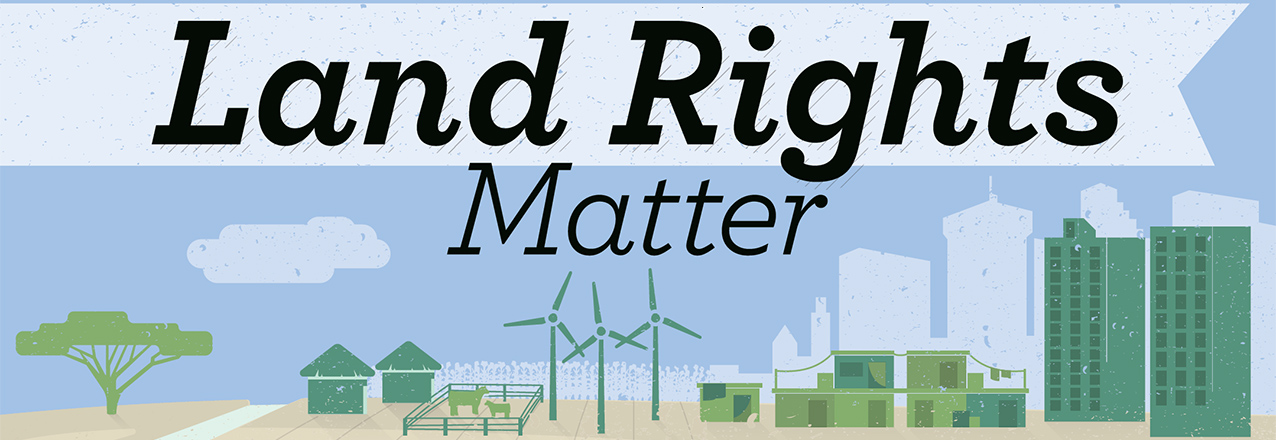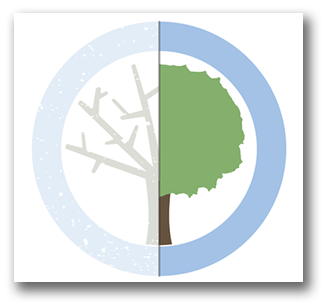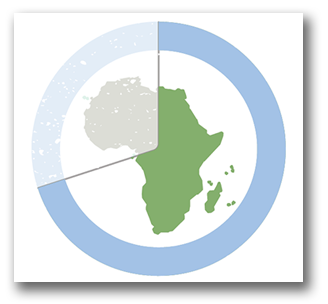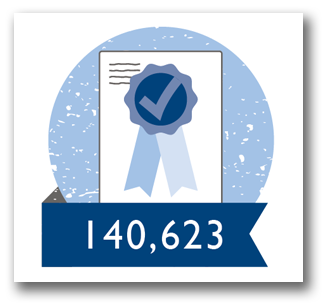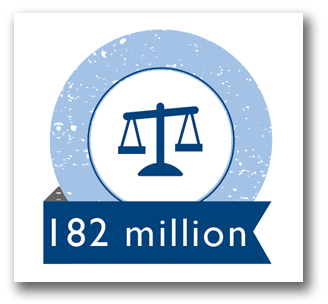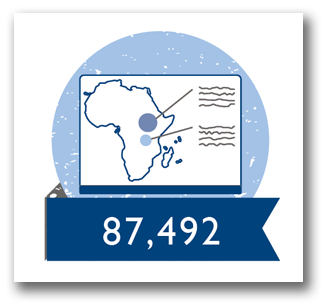Strengthening land and property rights is central to ending extreme poverty, reducing hunger, and promoting resilient societies. Clear, secure land rights create incentives that enhance food security, economic growth, and sustainable development.
In many countries, land rights and land governance systems are weak. Rights and claims to land are often undocumented and overlapping. Demand for land is rising, fueling competition, conflict, and increasing barriers to access for some groups.
Evidence suggests that UNDERSTANDING, CLARIFYING, and ENFORCING LAND RIGHTS can have a powerful impact on all members of society, especially women.
Secure land and property rights create incentives for investment and trade and contribute to job growth and global prosperity. Secure rights also create incentives for good stewardship of land and natural resources, which improves food security, agricultural productivity, and limits the degradation and misuse of valuable resources. Insecure property rights and weak land governance systems often provoke conflict and instability, which can trap communities, countries, and entire regions in a cycle of poverty.
Governments, the private sector, donor agencies, and civil society are increasingly recognizing the critical importance of these issues and engaging in global coordination to improve land and resource governance systems. Increased media coverage of land issues, the G7 and G20’s focus on land and property rights, the adoption of the Voluntary Guidelines on the Responsible Governance of Tenure of Land, Fisheries and Forests (VGGT), Principles for Responsible Investment in Agriculture and Food Systems (RAI), and Sustainable Development Goals (SDGs), and many more agreements and agendas that recognize the importance of land tenure and resource governance, all highlight a clear message: Land rights are a central and vitally important global development issue.
With active programs in 23 countries, representing a commitment of over $215 million, the United States Government is addressing these issues through programs that improve land governance systems and strengthen land tenure and resource rights for many of world’s poorest people. Through the U.S. Agency for International Development (USAID), the Millennium Challenge Corporation (MCC), and the Feed the Future Initiative, the U.S. is taking a whole-of-government approach to addressing land tenure and property rights in support of key strategic objectives.
Key Issues
USAID works along with other U.S. Government programs in land tenure and property rights to address a wide variety of strategic development outcomes that are critical to U.S. domestic and foreign policy goals:
Expanding Economic Growth
Clear, secure, and negotiable rights to land and resources are fundamental to long-term economic growth and development. USAID promotes economic growth through land and resource governance interventions including: increases to investment, credit availability, public revenues, and poverty reduction. Learn more »
Improving Food Security and Agricultural Productivity
Clear and secure property rights for owners and users reduce the potential for conflict and the threat of eviction; provide incentives to conserve and improve these assets; encourage land-related investments; allow land rental and markets to transfer land to more productive uses and users; and, if coupled with cost-effective systems of land administration, reduce the cost of credit by leveraging these assets as collateral. USAID creates enabling environments that are conducive to agricultural growth and food security hinged upon prioritization of securing land and property rights of smallholders, investors, and other resource users. USAID is working through multiple channels to address the complex set of issues around tenure and food security in 14 countries and at the global policy level. Learn more »
Empowering Women and Ensuring Gender Equality
Women have less access, control, and ownership of land and property in many developing nations, and their land rights often are insecure and unrecognized. This can severely limit women’s economic opportunities, making them more vulnerable to poverty, hunger, and displacement. Strengthening women’s land and property rights can empower women and lead to positive changes that improve food security and family nutrition, and better enable women to participate in decision making, earn an income, and gain access to credit. USAID has played a leading role in support of women’s land rights and has supported coordinated policies and programs that clarify and strengthen women’s land rights and USAID is working to address the complex set of issues around women’s land rights in 17 countries. Learn more »
Addressing Global Climate Change and Improving Natural Resource Management
Secure land and resource rights are key drivers of biodiversity and sustainable natural resource management. Integrating land tenure and resource management considerations into policies and programs can also increase resilience to the impacts of climate change. USAID improves biodiversity and stewardship of natural resources by promoting the use of clean energy, climate smart agriculture practices, supporting REDD+ and sustainable landscape programming, building capacity for low emissions development, and helping to secure rights over land and resources so that people have incentives to conserve resources because they are better able to capture future investment returns, as well as improve livelihoods and local governance. Learn more »
Improving Governance, Limiting Conflict and Providing Humanitarian Assistance
Competition over land and the resources found on land drives much conflict around the world. Understanding the role of land in conflicts can help policy makers develop strategies to ease tensions among groups and avoid violence. USAID strengthens participatory, representative and inclusive political processes and government institutions that clarify land and resource rights, including: land administration (survey and registration), land information system provision (records), land dispute resolution, public land management, land use planning (environmental and developmental), land policy and legislation, and valuation and taxation. Additionally, USAID addresses the sources of instability and violent conflict caused by disputes through interventions that resolve land- and resource-related conflicts and drivers of conflict. Learn more »
Customary and Community Tenure
In many nations, customary informal tenure systems exist in addition to, and alongside, formal legal systems. Customary systems have developed over time to meet a given community’s needs for tenure security. These communities’ traditional systems should not be viewed as lesser than formal systems and finding ways to recognize customary tenure can be an advantage to many societies. USAID develops land programming that works with the positive elements of customary and community tenure systems as well as with formal land institutions to strengthen land rights and USAID is piloting effective, scalable solutions to understand and address the challenges of customary and community systems. Learn more »
Global Impact
23 countries with active USAID land tenure programs …
215 million dollars committed to those programs …
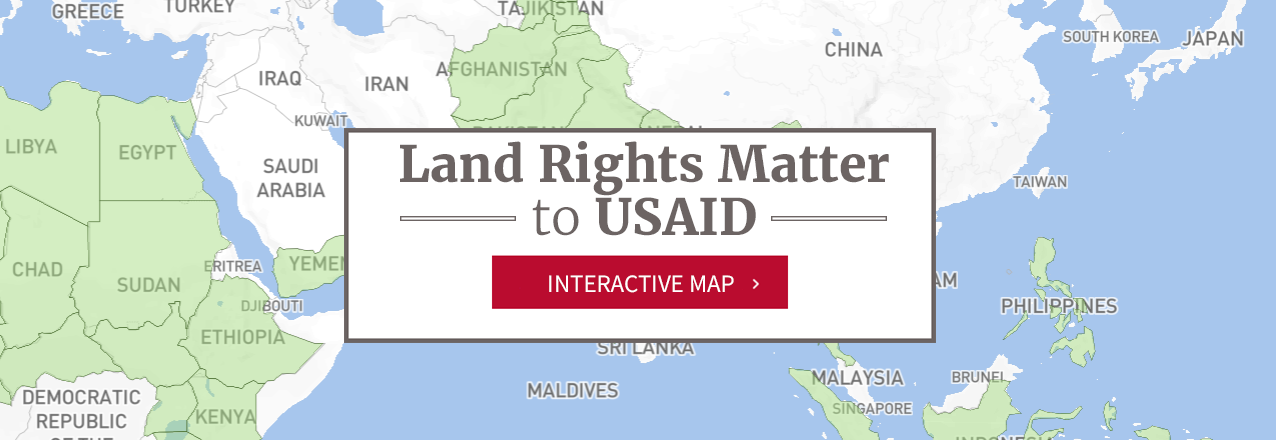
Through USAID, the Millennium Challenge Corporation (MCC) and the Feed the Future Initiative, the United States Government provides technical support, training and thought leadership on strengthening land tenure and property rights to local and national governments, civil society organizations and the private sector. The U.S. Government is a global leader in the land and resource governance sector and is committed to working with the international community to develop and implement guidelines and principles that strengthen land and resource governance systems as a strategy for improving food security, economic growth, and sustainable development. Learn more about how the United States leads through international agreements and global coordination »


